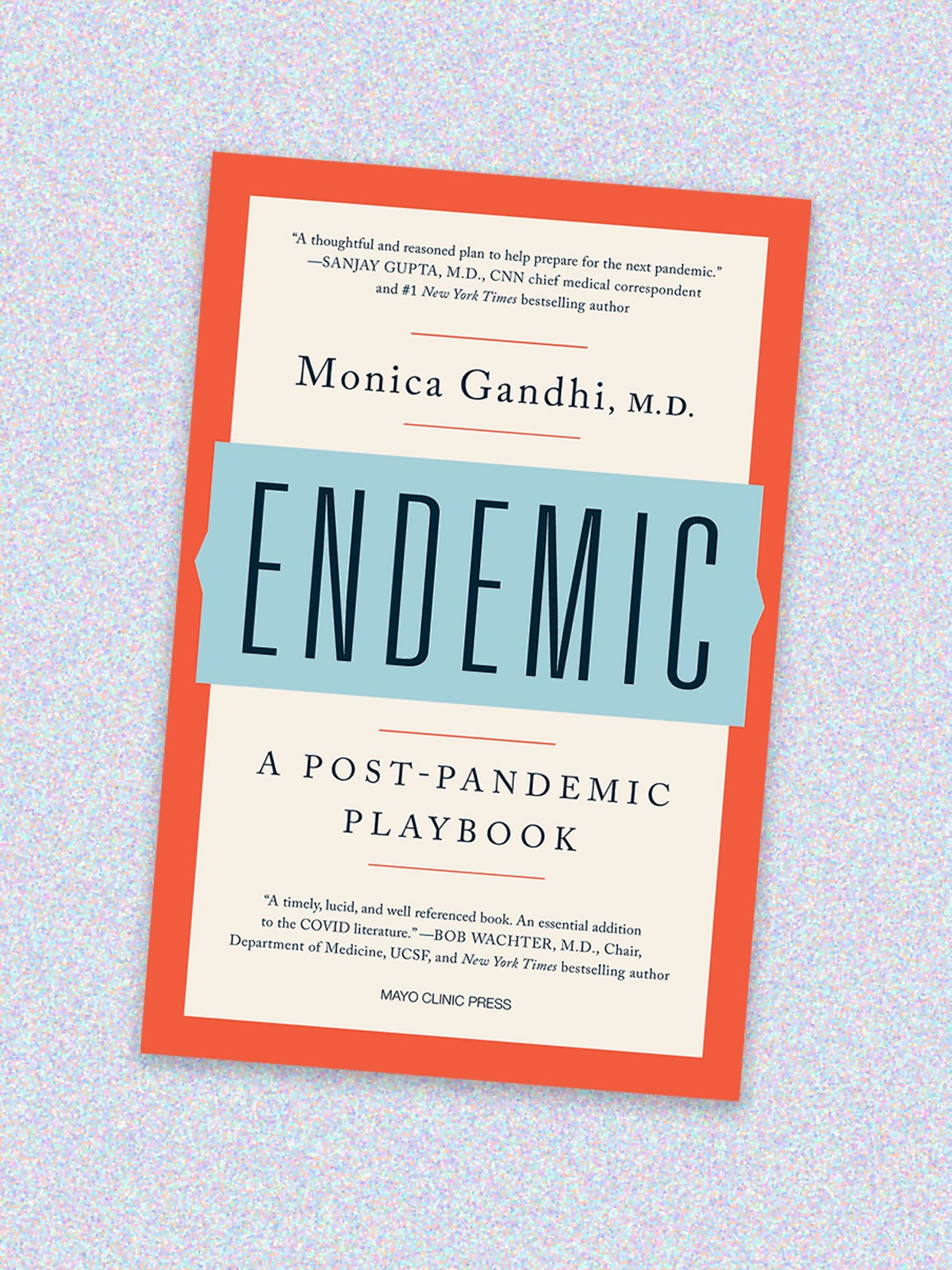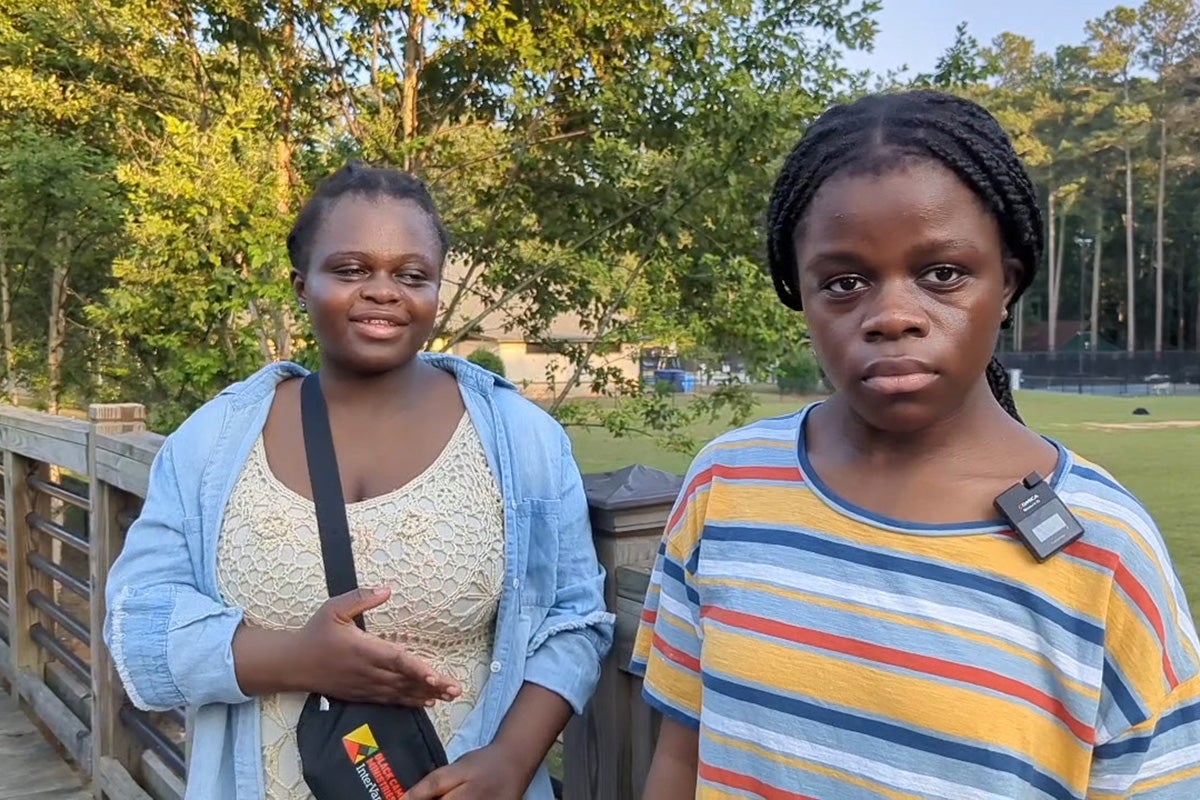
People
Our next pandemic’s playbook
Monica Gandhi was a highly respected but little-known HIV researcher in San Francisco before the pandemic hit. Then she was suddenly everywhere, often with unpopular opinions that clashed with prevailing public health consensus. She criticized restrictions on in-person medical care and kept her practice open throughout the pandemic. She argued that closing outdoor parks and beaches did more harm than good and issued fiery criticism of prolonged school closures. Drawing on her work treating HIV patients from vulnerable populations, she advocated early on for a pandemic response that prioritized the needs of the poor. Gandhi says her COVID-19 advocacy was based in harm reduction, the principle that underpins her approach to medicine and public health.
Once called COVID-19’s “wrongest woman,” by MSNBC’s Mehdi Hasan, Gandhi is getting positive reviews for her new book, Endemic: A Post-Pandemic Playbook. The Lancet called the book an “enlightening resource” for navigating pandemics.
Gandhi spoke to Harvard Public Health senior editor Christine Mehta about why harm reduction should be central to public health, how it felt to be cast out of her political “tribe,” and what she thinks needs fixing before the country’s next pandemic. This conversation has been edited for length and clarity.
Sign up for Harvard Public Health
Delivered to your inbox weekly.
Mehta: What motivated you to write Endemic?
Gandhi: I was asked at one point to write a chapter on COVID-19 for the new 2024 edition of a widely-read infectious disease textbook, what we call the “infectious disease bible.” I sent off a chapter on vaccines, therapeutics, and virology, but they sent it back to me. They said they wanted me to reckon with how pandemic policies like school closures, lack of vaccine equity, and lack of harm reduction measures had hurt people, especially children. That chapter really became the “playbook” in Endemic.
Mehta: You were a controversial public figure during the pandemic. You had no shortage of critics across the political spectrum. How did you navigate the criticism, and do you think your new book helps clarify where you stand?
Gandhi: It was very difficult, actually. My husband had passed away from cancer three months prior to the pandemic. I was grieving. I felt alone. Professionally, I was used to being part of a political tribe. I was in Boston for medical school at Harvard University. I came to San Francisco to practice medicine in part because I’m really progressive, and I wanted to live in a progressive city that I thought was focused on harm reduction in medicine and politics.
I think anyone who is an infectious disease doctor is really at heart a harm reductionist. We see sexually-transmitted diseases, injection drug use-transmitted diseases .… Harm reduction is sort of all about leaving people alone. We don’t necessarily tell people what to do. During the HIV epidemic, bathhouse closures were profoundly controversial in San Francisco because that policy told people there was “bad sex” and “good sex.” As a doctor, I don’t feel it’s my place to tell anyone what to do or not do. I’m here to tell you how to stay safe. There’s condoms and treatment and prevention.
So, what happened during COVID-19 is that we lost focus on harm reduction in our response. To be honest, the policy I was most critical of was closing public schools and the negative impacts that had on kids. That’s the main thing I wrote about, and it opened me up to a lot of attacks.
I think harm reduction is the heart of this book, and of my community of infectious disease doctors. I feel I was reflecting the views of my community; it’s just that for a while I was one of the few criticizing the public health community’s early response to the pandemic.
I hope that people will approach [the book] with an open mind, because I think if you read it, it very much supports pandemic responses that prioritize equality, justice, and education. I believe public health strayed from keeping focus on principles of equality, social justice, and disparities in education—and what that educational loss would mean for children, especially racial and ethnic minorities.
Mehta: I want to dig in a little more on how public health approaches diseases that disproportionately affect vulnerable populations. It seems to me that harm reduction plays less of a role in public health responses for respiratory diseases like COVID-19 and, in other countries, tuberculosis. Is there something about the respiratory nature of certain infectious diseases that changes the way the public health field approaches them?
Gandhi: The thing about respiratory illnesses is you could very much say, “Oh, we have to lock down our society because anyone can get it. We’re all equally susceptible because it’s in the air.” But what happened during the 1918 influenza epidemic was the exact opposite. In 1918, the lockdowns were very short. They were actually only for two weeks until they figured out it was respiratory—then they focused on indoor ventilation, keep many activities outside. And then the most important part of the story is what progressive cities did with schools. New York, Chicago, and New Haven were told by the federal government to close schools. And they said, “No way.” At that time, 750,000 children in New York City were living in tenements. And school was the place where they got food. School was absolutely the place they needed to be. Unfortunately, in response to COVID-19, too many places kept their schools closed for way too long.
Mehta: Any closing thoughts?
Gandhi: I’ve had this long-standing view, informed by my work as an HIV researcher, that harm reduction is relevant to our public health responses to all infectious diseases. I want to get away from this idea that I’m far from the mainstream, because I’m not. At the end of the day, it’s important we acknowledge the harms and burdens that lockdowns, school closures, and other pandemic-era policies wrought, especially on the poor.
Book cover: Courtesy of Mayo Clinic Press


